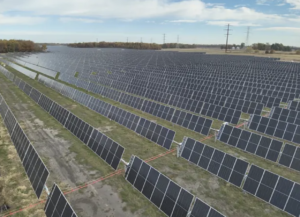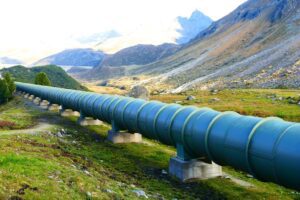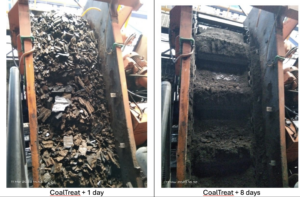The White House is moving to support the solar power industry, including U.S. manufacturing of solar panels and other equipment, by pausing tariffs on imported solar panels from four Southeast Asian countries. The 24-month moratorium announced June 6 will exist while U.S. officials continue to look at the practices of Cambodia, Malaysia, Thailand, and Vietnam, countries that are being investigated for possibly circumventing tariff rules.
The solar power industry has decried the investigation, saying it has led to supply chain constraints that are threatening U.S. solar power projects, and industry jobs. Officials from across the U.S. energy sector on Monday applauded the move, saying it should lead to more certainty regarding equipment used for power generation, transmission, and distribution.
President Joe Biden on Monday issued plans for the two-year exemption on tariffs, noting the investigation’s impacts on the solar power industry, and its threat to the administration’s own clean energy goals. The White House said it would continue to push Congress “to pass clean energy investments and tax cuts” to spur U.S. manufacturing. Biden also said he would authorize use of the Defense Production Act (DPA) “to accelerate domestic production of clean energy technologies, including solar panel parts.” The president, as part of Monday’s move, also issued a memo supporting domestic production capability of electric heat pumps.
Morten Lund, an energy partner with Stoel Rives, told POWER, “Postponing the effectiveness of a potential tariff expansion is a big deal and this freeze seems to indicate it would effectively kill the retroactive portion of the tariffs. That takes care of the uncertainty issue, which frankly is at least as important as the tariff itself.
“Development and procurement has slowed significantly in advance of the tariff ruling, and this gives the industry price certainty which will allow us to proceed with development effects. This benefit is not just for the duration of the freeze, but also thereafter—if there is a tariff expansion this year, we will have two years to prepare for it and price it into projects. It would actually be a significant benefit if all tariffs came into effect this way, with a lead-up transition. The inability to plan ahead always causes a temporary pause and is very harmful.”
Tariffs Imposed on Chinese Equipment
The tariffs were initially imposed by the Obama administration on Chinese and Taiwanese solar cells and modules, in an effort to make U.S.-produced solar equipment more competitive. Auxin Solar, a small-scale California-based solar panel manufacturer, earlier this year submitted a petition to the U.S. Department of Commerce alleging that Chinese companies were dodging the tariffs by building solar cells and modules in Cambodia, Malaysia, Thailand, and Vietnam. The petition alleged the equipment being built in those countries was still using Chinese-built polysilicon wafers and other materials, as well as Chinese intellectual property.
The Commerce Dept. began an investigation in March, and U.S. solar developers almost immediately reported supply chain disruptions and a sector-wide slowdown.
Abigail Ross Hopper, president and CEO of the Solar Energy Industries Association (SEIA), in a statement Monday said, “We applaud President Biden’s thoughtful approach to addressing the current crisis of the paralyzed solar supply chain. The president is providing improved business certainty today while harnessing the power of the Defense Production Act for tomorrow. Today’s actions protect existing solar jobs, will lead to increased employment in the solar industry and foster a robust solar manufacturing base here at home.”
National Rural Electric Cooperative Association (NRECA) CEO Jim Matheson in a statement said, “For several months, America’s electric cooperatives have raised serious questions about supply chain disruptions to materials necessary for reliable operation of the nation’s electric infrastructure. In particular, shortages of transformers pose a risk to normal electric grid operations as well as recovery efforts for systems disrupted by a natural disaster. The Biden administration’s use of the Defense Production Act to shorten lead times for supplies of electric transformers is a much-needed step to support reliability and resilience, and NRECA urges inclusion of all stakeholders in the implementation process as well as additional measures to avoid unnecessary interruptions to electric grid operations.”
‘Full Power’ of Government Procurement
The White House in Monday’s action said it would use “the full power” of federal government procurement to work, saying it would support “additional domestic solar manufacturing capacity by directing the development of master supply agreements, including ‘super preference’ status.” It also said it would continue to reinforce “the integrity of our trade laws and processes” as it continues to look at whether solar panels coming the four Southeast Asian countries have violated tariff rules.
Said Hopper, “While the Department of Commerce investigation will continue as required by statute, and we remain confident that a review of the facts will result in a negative determination, the president’s action is a much-needed reprieve from this industry-crushing probe. During the two-year tariff suspension window, the U.S. solar industry can return to rapid deployment while the Defense Production Act helps grow American solar manufacturing.”
Lund told POWER, “The mention of using federal procurement to drive domestic manufacturing is potentially more significant than the DPA both in the near and long term. The U.S. federal government is arguably the largest energy purchaser in the world, and leveraging that purchasing power could have immediate and profound impacts.”
Negative Impacts of Investigation
Industry leaders, along with lawmakers and several officials within the Biden administration, have repeatedly highlighted the negative impacts on the solar sector of the Commerce Dept.’s probe. Expectations have been that the investigation could take as long as a year to complete, and developers of solar projects said the industry would suffer as the probe continued.
The American Clean Power Association has said about 80% of the solar panels used by U.S. companies come from those four countries. The Commerce Dept. has said its investigation, depending on its findings, could lead to tariffs of 50% or more on imports of solar equipment from those countries.
Commerce Secretary Gina Raimondo last month told the Senate Appropriations Committee that her agency wants to quickly provide at least an early response from the investigation, and Commerce has said it will present preliminary findings from the investigation on August 30, the date it is set to publish a preliminary duty rate for importers of all products. A final decision on the tariffs is expected in January of next year.
‘Existential Crisis’
Hopper, who has said the investigation created an “existential crisis” for the U.S. solar power industry, on Monday said that “growing a robust solar supply chain here in the United States is critical to meeting SEIA’s goal of having solar account for 30% of all electricity by 2030. Today’s announcement is a great step, and enactment of the Solar Energy Manufacturing Act for America will provide an even greater boost. The work our members did to articulate the urgency created by the initiation of this case and to provide data on negative impacts was critical to the effort to raise awareness about the damage being done. President Biden recognized this and has taken the steps needed to both accelerate the deployment of solar energy and invest in America’s clean energy future.”
Industry officials on Monday said President Biden would invoke the DPA to use federal loans and grants to support U.S. solar panel manufacturing, along with other clean-energy technologies. Energy Secretary Jennifer Granholm in a statement said that authority would allow the Dept. of Energy to “help strengthen domestic solar, heat pump and grid manufacturing industries while fortifying America’s economic security and creating good-paying jobs, and lowering utility costs along the way.”
—Darrell Proctor is a senior associate editor for POWER (@POWERmagazine).










